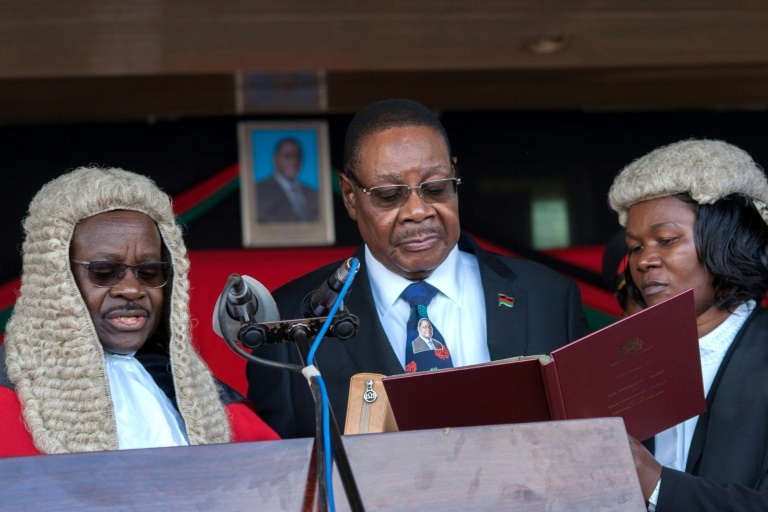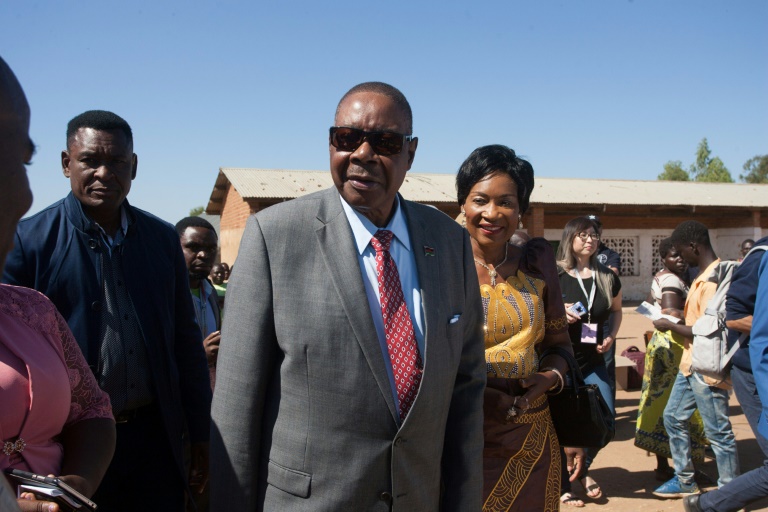
Newly sworn-in Malawian President Peter Mutharika has made a dramatic return to power at the age of 85, reclaiming the country’s top office nearly a decade after losing it and becoming Africa’s second-oldest sitting president.
- Peter Mutharika, 85, has been sworn in as Malawi’s president, marking a return to leadership nearly a decade later.
- The inauguration follows his decisive electoral victory, securing 56% of votes against incumbent Lazarus Chakwera.
- His comeback highlights nostalgia and questions about leadership in advanced age.
- His return reignites debates on African leadership regarding experience versus the need for generational renewal.
Malawi’s political landscape has taken an extraordinary turn as Peter Mutharika, aged 85, was sworn in on Saturday for a second stint as president, a comeback that cements him as Africa’s second-oldest sitting head of state after Cameroon’s 92-year-old Paul Biya.
Before Mutharika’s return to power, Africa’s second-oldest president was Teodoro Obiang Nguema Mbasogo of Equatorial Guinea, born on June 5, 1942, and now 83 years old. Beyond his age, Obiang holds the distinction of being the world’s longest-serving non-monarchical head of state, having ruled the oil-rich Central African nation since 1979.
Mutharika’s emergence now pushes Obiang to third place in Africa’s old guard hierarchy, marking a reshuffling among the continent’s longest-serving and oldest leaders.
The inauguration, held in Lilongwe, marks a dramatic political return for Mutharika, who first served as president from 2014 to 2020 before his disputed re-election was overturned by the courts.
His victory this time, with roughly 56% of the vote against incumbent Lazarus Chakwera’s 33%, signals a decisive shift in Malawian politics, one defined as much by nostalgia as by questions about leadership in old age.
A comeback shaped by age and experience
Mutharika’s age places him just behind Cameroon’s 92-year-old Paul Biya on the continent’s leadership ladder and makes him the oldest serving president in Southern Africa.
Analysts say his return reflects both the persistence of personality-driven politics in the region and the public’s frustration with economic stagnation and corruption under Chakwera’s administration.

At his swearing-in ceremony, Mutharika struck a tone of resilience, promising to restore economic stability and fight graft. “Our nation’s challenges are immense, but not insurmountable,” he declared, pledging to rebuild confidence in Malawi’s struggling economy. Yet his advanced age has already raised concerns about energy, continuity, and the long-term vision required to steer a nation still reeling from inflation, fuel shortages, and recurring climate shocks that have battered food security.
Observers note that Mutharika’s return also revives an old debate in African politics: the tension between experience and renewal.
While some Malawians view him as a steady hand capable of restoring order, critics see his comeback as a symptom of political recycling that keeps younger voices at bay. “This is not just about age, it’s about the ability to connect with the urgency of a new generation,” said a political analyst in Blantyre.
Old leaders, new challenges
Across the continent, age remains a defining feature of leadership. Beyond Biya and Mutharika, several other African leaders are in their late seventies or eighties, reflecting what analysts describe as a “gerontocratic pattern” in governance.
Still, for Mutharika, this term offers a chance to shape how history remembers him as a seasoned statesman closing out a career of service or as a symbol of Africa’s lingering struggle to renew its leadership class.
Either way, at 85, Malawi’s president has made clear he still believes his best years of leadership are not yet behind him.












